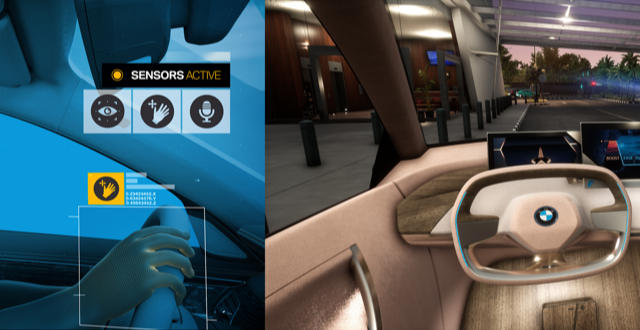
Towards Cognitive Vehicle Workshop: Is bio-inspiration helpful?
18 November, 2019, by Yulia Sandamirskaya
The IEEE/RSJ International Conference on Intelligent Robots and Systems (IROS) is one of the largest Robotics conferences in the world that brings together the Robotics research community and Robotics companies. It gathers several thousand participants and features keynotes, breaking-news posters, industry exhibitions, and 20 parallel tracks of technical presentations. Before and after the main meeting, 20 workshops offer a possibility to dive into different topics that are of particular importance to the community. Applying for a workshop is a competitive process, it requires support of IEEE Technical Committees and is subject to peer review.
At IROS 2019, NEUROTECH joined forces with BMW Group Research center in Munich and organized a Workshop “Towards Cognitive Vehicle: perception, learning and decision making under real-world constraints. Is bio-inspiration helpful?“:
We set an ambitious goal to discuss all facets of an artificially intelligent system in a safety-critical domain – such as driving. We aimed to draw attention not only to autonomous driving, but also intelligence inside the vehicle: monitoring of the driver’s behavior, adjusting the interior to the passengers’ needs, exploring novel human-machine interaction modalities. The main questions we had in mind during the discussions were:
- Are neuronal-network based architectures reliable and trustworthy enough to be deployed in safety-critical domains in the near future?
- If we make the AI systems even more bio-inspired – using efficient event-driven computing, neuromorphic hardware, online learning and adaptation – will we be able to guarantee safe and robust behavior?
The workshop had a dense and interactive program. We organized three sessions of academic talks on perception, learning, and cognition, featuring such prominent researchers as Michael Milford, Davide Scaramuzza, Justus Piater, Gregor Schöner, Robert Haschke, and Mauro da Lio. These were complimented with an industrial session with talks from BMW’s Vice president of E/E Architectures, Technologies and AI, Michael Würtenberger, a human-factors specialist (Volvo and University of Leeds) Gustav Markkula, and entrepreneur and autonomous driving visionary Tarin Ziyaee. The talks were intermixed with poster sessions and three panel discussions with the speakers.
Our conclusion was: there is a path to safe, explainable, robust, and performant neuronally-inspired AI. It will require creating neuronal architectures with more structure, taking inspiration in research on embodied cognition, concept learning, and specialized neuronal circuits, as found, e.g. in insect navigation and escape behaviors. Studies of human behavior will help, as well as development of new sensing and actuation technology. Event-based vision and tactile sensing seem to be on the verge to broad deployment in intelligent robotic systems. Neuromorphic engineering will play a critical role and making AI architectures energy efficient and reactive.
Presentation slides are being collected and will be made available to the workshop's webpage, where also the proceedings have also been published.
The workshop was supported by the NEUROTECH project.

From left to right: Yulia Sandamirskaya (Uni Zürich), workshop participant Maike Hartstern (KIT), and co-organisers Mohsen Kaboli and Florian Mirus (BMW).